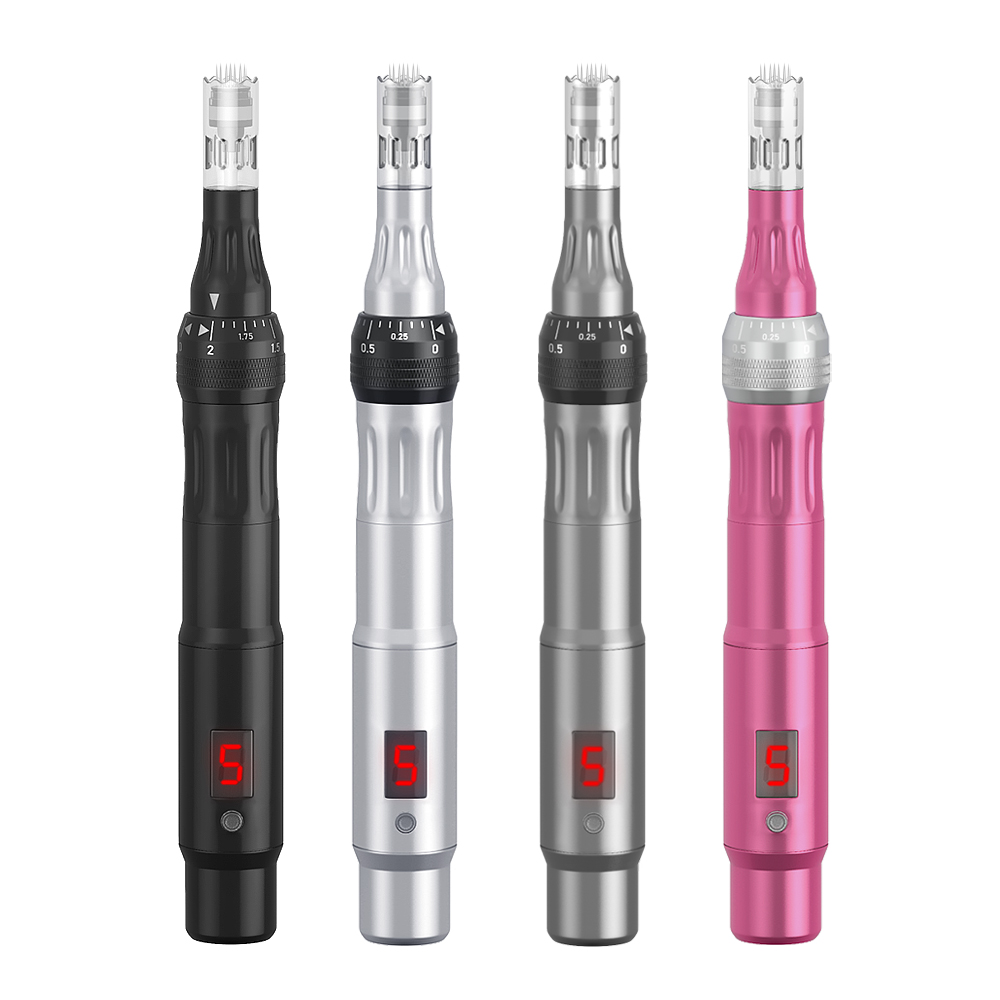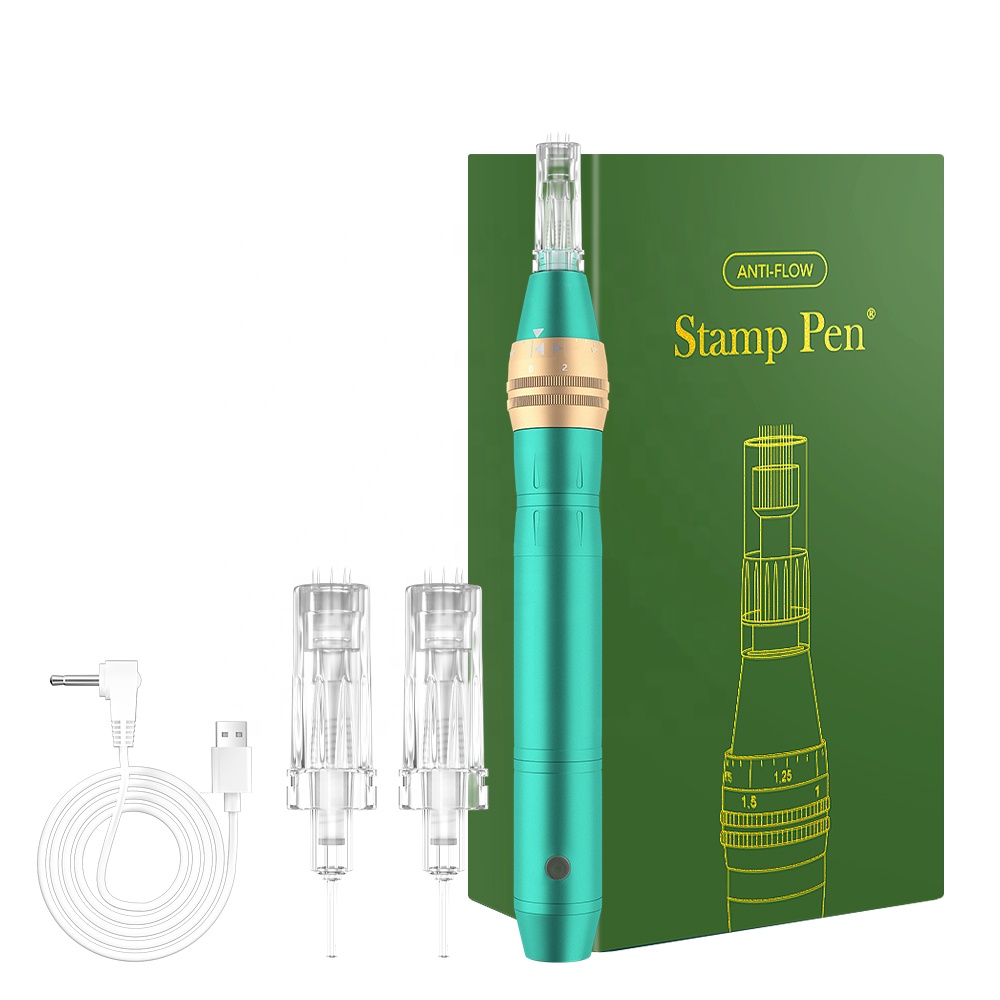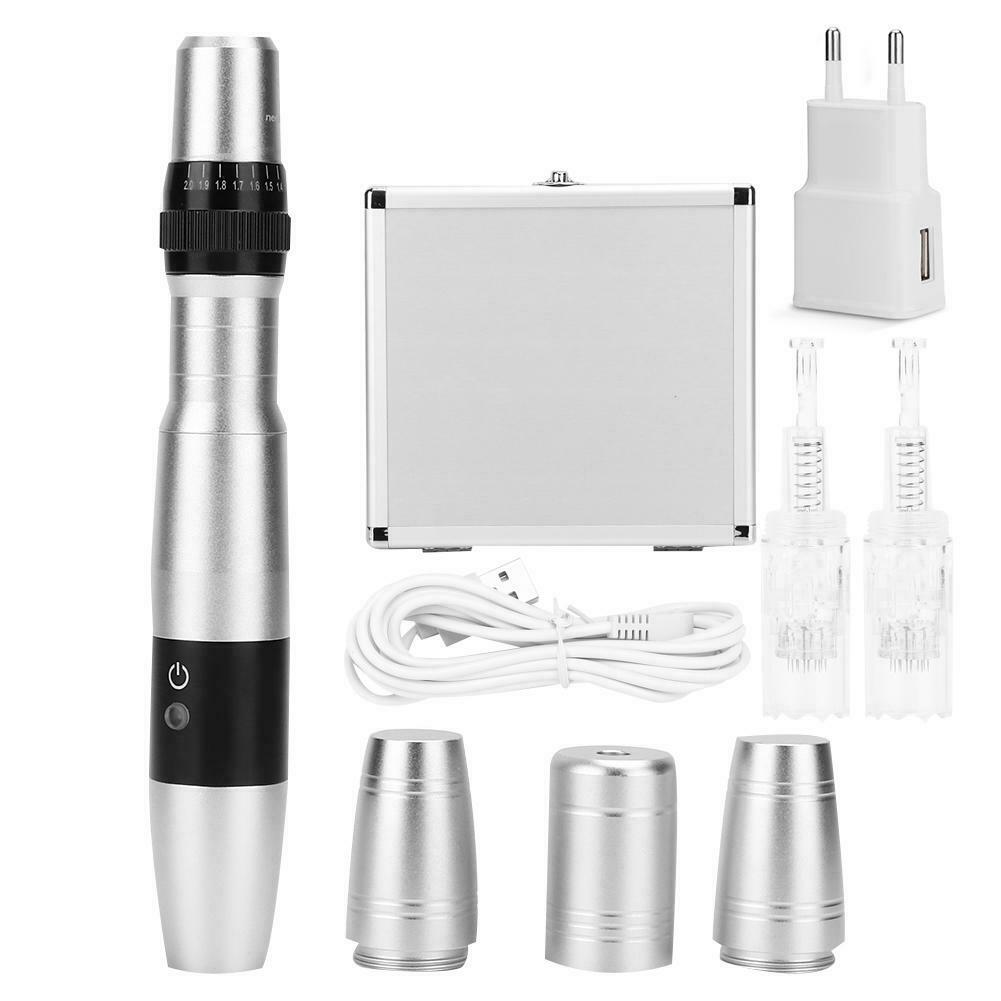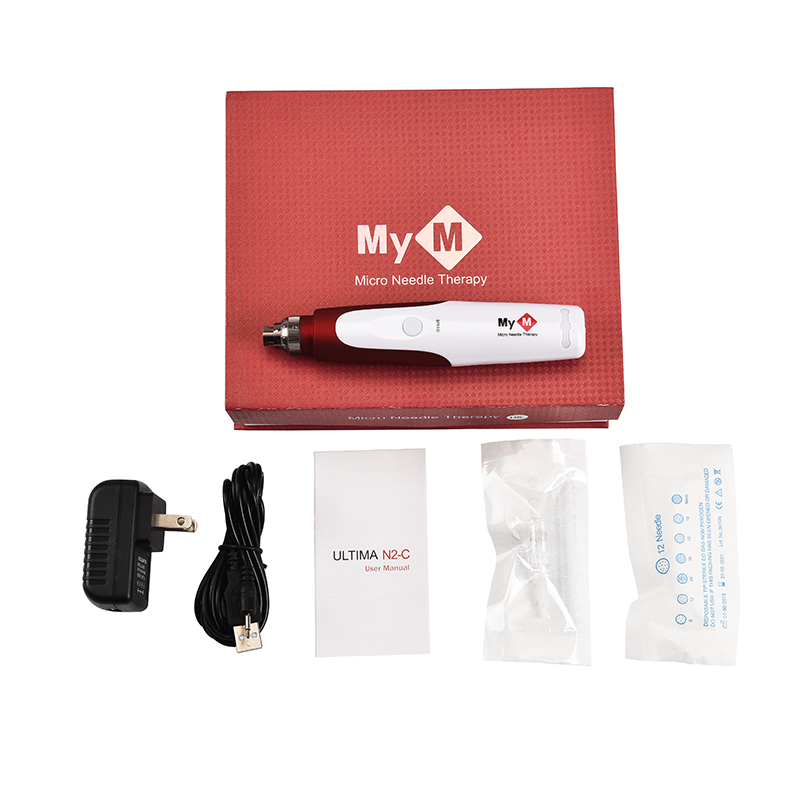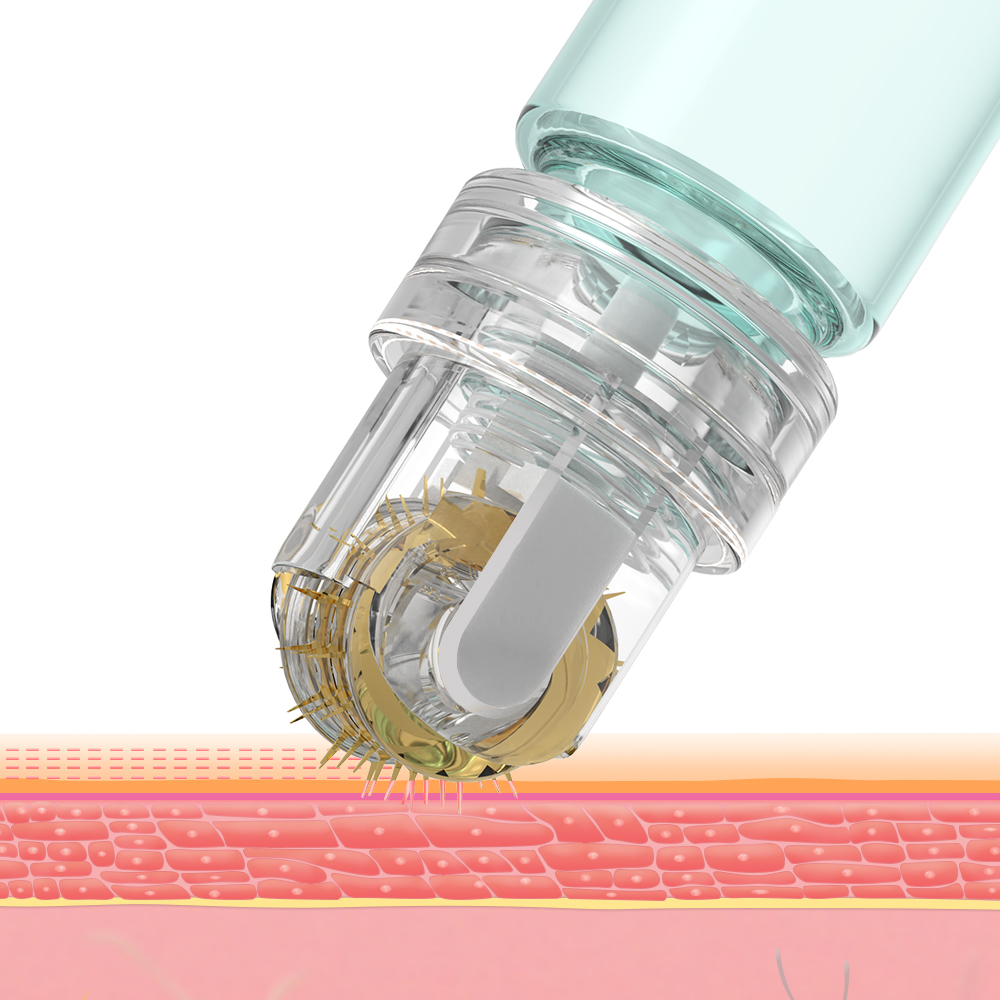Microneedling vs. Microdermabrasion: What’s the Difference?
One of the reasons your skin may look dull and appear older is because of the presence of dead and damaged skin cells. The best way to get rid of these skin cells is by exfoliation. There are plenty of exfoliation products in the market, but the two most popular cosmetic treatments for handling dead skin cells and promoting skin regeneration are microneedling and microdermabrasion. From the names alone, these procedures might sound similar, but they’re actually quite different from each other.
So what is the difference between microneedling and microdermabrasion? Microneedling uses needles to puncture the skin in order to create microscopic holes to trigger the skin’s collagen and elastin production for skin repair, while microdermabrasion uses a tool with a rough tip and a built-in vacuum to exfoliate the skin and collect the debris. While microneedling is used for treating deep wrinkles, stretch marks, and old scars, microdermabrasion is usually for exfoliating the skin and treating new and superficial scars.
Microneedling vs. Microdermabrasion
Both microneedling and microdermabrasion are skincare procedures that can help shed away dead skin cells and bring forward younger and healthier skin cells. Both procedures are suitable for all skin types and can be done at home, but for best results, patients should have theirs done by a professional.
Microneedling vs. Microdermabrasion: How These Work
Microneedling – also known as collagen induction therapy – uses your body’s natural response to skin trauma to get rid of dead skin cells. Thin surgical steel needles from a handheld device puncture microscopic holes on the skin surface. This triggers your skin to produce more collagen and elastin to begin repairing your skin. Combined with serums and your usual skincare routine, this can help get rid of dead skin cells and bring forward new skin cells that can give you more youthful skin.
The concept of microdermabrasion, on the other hand, is similar to sandpapering your skin. Microdermabrasion machines use a mechanical device with abrasive material at the tip to exfoliate your skin while a built-in vacuum sucks up the debris. Unlike microneedling procedures which take multiple sessions before you can see results, microdermabrasion shows instant results. However, you’ll have to have multiple sessions to keep removing the dead skin cells that build up on your face.
Pros and Cons
Microneedling and microdermabrasion have many advantages. However, it’s important to also consider the possible drawbacks.
Microneedling Microdermabrasion
Pros
Treats your face, body, and scalp. Microneedling can be used to address problems like dark spots on certain parts of your body. It is also used on the scalps of patients trying to improve hair growth.
Offers different levels of treatment. Microneedling uses needles of different lengths according to the skin condition. Needles longer than 2 mm can reach the epidermal layer of your skin and treat issues like wrinkles and stretch marks. For deeper procedures like treating deep scars, professionals use numbing cream to reduce the pain during the treatment.
Makes skincare products more effective. The microchannels make skincare products penetrate deeper layers of the skin, making it more effective as your skin absorbs more nutrients while it heals. Instant results. Unlike microneedling that takes more time and more sessions to produce visible results, microdermabrasion instantly removes dead skin cells, providing instantly smoother skin.
Quick procedure. One microdermabrasion treatment takes around 30 minutes. It is also minimally invasive, non-surgical, and virtually painless.
Can last up to 12 months. Microdermabrasion results can last up to 12 months. However, if you want to maintain brighter-looking skin, you should schedule more sessions every 2 to 3 months to constantly shed away dead skin cells.
Cons
Requires multiple sessions to produce visible results. Microneedling won’t have instant results like microdermabrasion provides. It can take weeks and multiple sessions to see visible changes in your skin’s appearance.
More expensive than microdermabrasion. Microneedling can cost between $200 to $700 per session. In comparison, the average cost of microdermabrasion sessions range from $100 to $250 per session.
More vulnerable to bacterial infection. The microchannels on the patient’s skin can be susceptible to bacterial infection if not handled carefully. This is why people suffering acne, psoriasis, cold sores, and eczema are not allowed to get microneedling until they are fully healed. Only addresses superficial scarring. Deeper scarring can be addressed with microneedling with longer needles. Microdermabrasion cannot treat deep acne scars as it cannot penetrate the deeper skin layers.
Scars must be less than 3 years old for microdermabrasion to work. After three years, untreated scars become deeply rooted into the skin and will require treatments like microneedling to penetrate those layers.
Age can affect the effectiveness of microdermabrasion. As people grow older, collagen production becomes much lower. This means it can be difficult for older patients to produce enough collagen to fill in depressed areas of the skin after one session.
Which Procedure Is Best for Certain Skin Conditions?
Microneedling and microdermabrasions similarly treat the skin by getting rid of dead skin cells and promoting healthy skin cell growth. Both are good options for those looking to treat the following conditions:
Acne scars (that are less than three years old)
Uneven skin tone
Uneven skin texture
Large pores
Brown spots and age spots
Fine lines
If your skin concerns are at a superficial layer and only involve the upper layers of your skin, microdermabrasion is the better solution, since it produces faster results. Aside from the ones mentioned above, it can also take on:
Sun spots or melasma
Age spots
Dull, tired-looking skin
Blackheads
Any other superficial scar
Microneedling can handle both superficial and deeper skin problems. However, since microdermabrasion produces faster results, it might be best to get microneedling for skin problems like:
Severe wrinkles
Stretch marks
Deeper and older acne scars
Other types of non-superficial scars
Loose, sagging skin
It’s important to note that everyone’s skin condition varies, so it’s best to talk to your dermatologist about which is the best option for your skin. Take into account your current skin condition, your desired results, and your pain threshold among other things, and discuss these with your dermatologist.
Aftercare Procedure
After both procedures, your skin can feel a little sensitive to the touch. For microdermabrasion, this is because the outer layer of dead skin cells has been removed and replaced by newer skin cells. For microneedling, the punctures are in the process of healing and the production of collagen to improve your skin’s composition.
Healing time can vary between patients. However, because both treatments are non-invasive procedures, both have minimal recovery time before you can resume with your daily habits.
Taking Care of Your Skin
Microneedling and microdermabrasion have similar care tips you should practice after your procedure.
Avoid touching your skin, especially with unclean hands to prevent bacterial skin infection. You can continue your usual skincare routine (or as advised by your doctor), but avoid certain types of skincare products, including:
Strong cleansers (your doctor may prescribe a gentle cleanser to use)
Moisturizers with perfume
Active skin care ingredients (ex. hyaluronic acid, niacinamide, salicylic acid, retinol, etc.)
Avoid long baths, soaking your skin, swimming in pools, and excessive sweating.
Avoid excessive sun exposure. If you have to go outdoors, apply sunscreen to your treated skin.
Avoid wearing makeup while your skin heals.
In case of pain, you can use a cold compress or take over-the-counter painkillers.
Additional Treatments
Microneedling requires multiple treatments before you can see visible improvements in skin quality. Scheduling a treatment plan depends on the procedure and needle length used. Superficial procedures that use needles shorter than 2 millimeters can be scheduled every other week. Longer needles, on the other hand, should be scheduled months apart to prevent long-term skin damage.
Microdermabrasion, on the other hand, can provide visible results after one procedure. This can be good for up to one year before it may be necessary to undergo another treatment. However, dead skin cells will slowly accumulate on your face over time. To keep your skin looking radiant, you can schedule microdermabrasion treatments once every three months.
Microneedling and microdermabrasion get rid of older skin cells, promote skin regeneration, and bring out newer, more radiant skin cells that can enhance your appearance. Depending on what you’re trying to treat, both are good options that offer little to no downtime with fairly easy aftercare.
Vaney Beauty provides cosmetic and wellness clinics with quality medical supplies and tools. Our competitively priced products help aesthetic centers to ensure smooth operations, drive profits, and increase customer satisfaction with cosmetic procedures.

